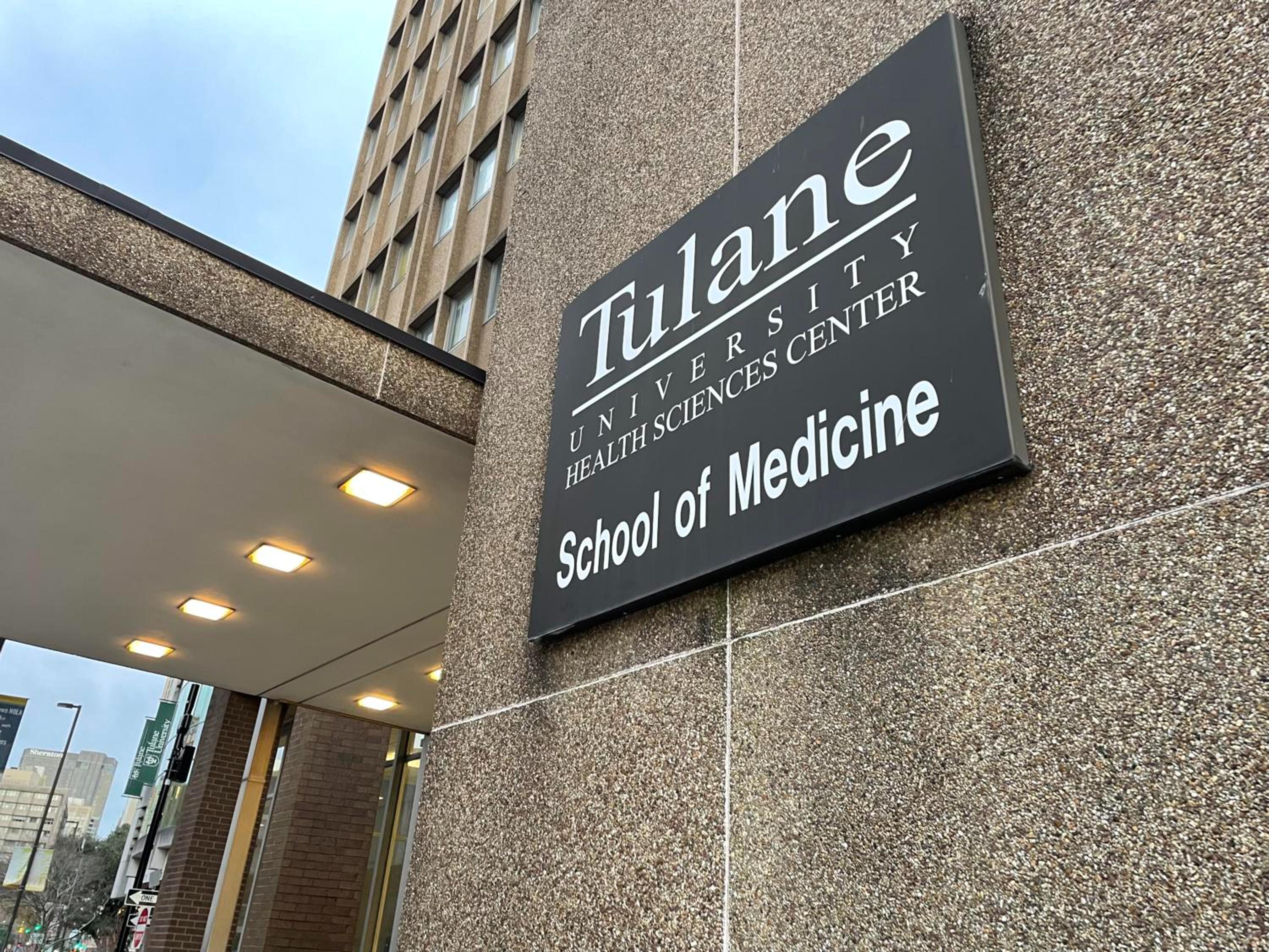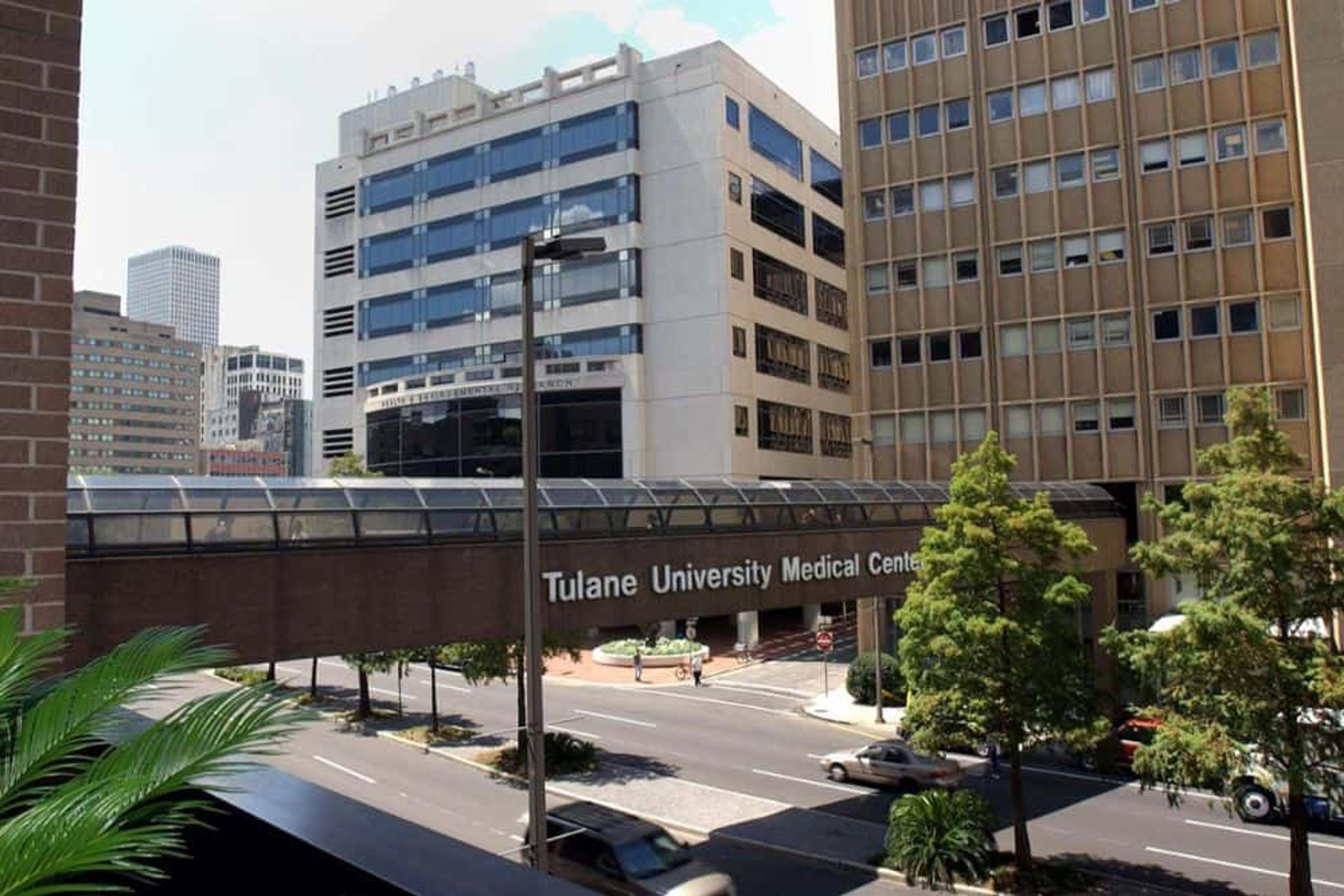How to Get Into Tulane Medical School (2026) — Ranking, Acceptance Rate, & Application
Learn how to get into Tulane Medical School with expert tips, stats, and application guidance. Includes acceptance rate, deadlines, and program insights.
Posted January 6, 2026

Join a free event
Learn from top coaches and industry experts in live, interactive sessions you can join for free.
Table of Contents
Tulane University School of Medicine is one of the oldest medical schools in the southern United States. It’s recognized for its strong clinical training, experienced faculty, and long-standing focus on community health. The school emphasizes hands-on learning and prepares students to become leaders in patient care, research, and public service, ensuring the highest quality patient care. Additionally, its mission statement states that the institution is dedicated to improving human health, fostering healthy communities, and preparing future leaders in medicine.
This guide covers what you need to know to apply to Tulane Medical School, including admissions data, program details, and practical tips to help strengthen your application.

How Hard Is It to Get Into Tulane Medical School?
Tulane University School of Medicine is one of the oldest medical schools in the country. Based in New Orleans, it has a strong reputation for training physicians committed to public health, community service, and working with underserved populations. Tulane’s programs also include a long-standing emphasis on tropical medicine and community-based care.
Admission is highly competitive. For the most recent cycle, Tulane received 13,814 AMCAS applications for just 190 seats, an acceptance rate of about 1.4%. The admissions committee evaluates applicants based on various factors such as GPA, MCAT scores, and holistic qualities like service, leadership, and fit with Tulane’s mission. The average matriculant had a GPA of 3.70 and an MCAT score of 510, with a wide range of backgrounds and ages represented in the class. Tulane values applicants with a demonstrated commitment to health equity, community engagement, and clinical excellence.
While Tulane isn’t among the top-ranked research institutions, it offers strong preparation in clinical practice, public health, and service-oriented medicine. The school also supports dual-degree options (like MD/MPH), and its connection to the Tulane School of Public Health and Tropical Medicine adds unique global and population health opportunities.
Visit the Tulane Medical School Class Profile.
According to U.S. News & World Report, Tulane ranks among the top schools for public health, and while its medical school may not appear in the top tier for research or primary care (due to selective data reporting), it remains well-regarded for students seeking strong clinical and community-focused training.
Programs Offered by Tulane Medical School
Tulane University School of Medicine offers a flexible, interdisciplinary education that supports a wide range of medical career goals. Whether you’re preparing for clinical practice, research, leadership in healthcare, or public health service, Tulane has structured programs that provide both academic depth and hands-on experience. Students have the option to pursue standard MD training or tailor their education through combined degrees, graduate programs, research tracks, and international service. Tulane is committed to fostering distinguished clinical training, emphasizing the importance of leadership in delivering high-quality patient care.
MD Program (Doctor of Medicine)
Tulane’s four-year MD program provides a balance of classroom learning, early clinical exposure, and patient-centered education. The curriculum is divided into pre-clinical and clinical phases, with the integration of standardized patient interactions, community outreach, and clinical rotations at affiliated hospitals in New Orleans. The program emphasizes service to underserved communities and hands-on care in a city with a complex and diverse patient population.
Students begin clinical skills training early and are encouraged to take on leadership roles in community-based projects, research initiatives, and student organizations throughout their time in the program.
Combined and Dual Degree Programs
Tulane is one of the few medical schools offering multiple dual degree options that can be completed on a structured, accelerated timeline. These programs are designed for students who want to expand their impact beyond traditional clinical work.
- MD/MPH (Master of Public Health)- A 4-year dual degree that trains future medical professionals in both patient care and public health systems. Students graduate with the skills to lead in disease prevention, health policy, and global health work. This program is ideal for those planning to work with underserved populations or in community health systems.
- MD/MS in Bioethics and Medical Humanities- A 4-year program that combines clinical training with a deeper understanding of medical ethics, cultural competency, and the human experience of illness. This path is a strong fit for students interested in medical policy, end-of-life care, or leadership in ethics committees.
- MD/MBA (Master of Business Administration)- A 5-year program offered in partnership with Tulane’s Freeman School of Business. This track equips future physicians with financial, operational, and strategic leadership skills. It's suited for those planning careers in hospital administration, medical entrepreneurship, or healthcare consulting.
- MD/PhD- Designed for physician-scientists pursuing long-term careers in academic medicine or translational research. Students conduct in-depth lab work in fields such as molecular biology, medical genetics, immunology, and neuroscience while completing clinical training. This track typically takes 7–8 years to complete.
Master's Programs (MS)
Tulane offers a range of one-year and two-year master’s programs in biomedical sciences. These are popular among students seeking additional academic preparation before applying to med school or those pursuing careers in healthcare research, analytics, or education.
One-Year MS Programs (Pre-Med Focused)
- Anatomy
- Biochemistry
- Microbiology
- Pathology
- Pharmacology
- Medical Genetics & Genomics
- Bioethics and Medical Humanities
- Physiology
Note: These programs can strengthen a future med school application by improving academic credentials, especially for students needing to demonstrate success in advanced science courses.
Two-Year MS Programs (Research & Career Track)
- Clinical Anatomy
- Clinical Research (MSCR)
- Clinical Research with Pre-Surgical Training (MSCRM+)
- Molecular and Cellular Pathobiology
- Biomedical Informatics
- Biochemistry and Applied Bioinformatics
Note: These programs are more research-intensive and often lead to non-clinical roles in healthcare data analysis, education, or biotech research.
PhD Programs
Tulane supports long-term academic and research careers through doctoral programs designed to produce independent scientific investigators and faculty researchers.
- MD/PhD — Students complete rigorous coursework and original research while also training for clinical practice.
- PhD in Aging Studies — A research-focused program exploring the biological, social, and healthcare systems related to aging. This track supports careers in geriatrics, policy, and aging-related medical innovation.
Graduate Certificates
Certificates allow students to build niche expertise in areas that complement their medical or research training. Available certificate options include:
- Clinical Research — For students conducting or overseeing clinical trials or healthcare studies
- Sports Medicine — Supports future careers in orthopedics, rehab, or athletic medicine
- Clinical Ethics — Relevant for students interested in medical decision-making, end-of-life care, and hospital ethics boards
- Research Ethics — Focuses on ethical oversight of clinical trials and human subjects research
Note: Certificates can often be completed alongside a master’s or MD program.
TRuMEd – Rural Medical Education Program
Tulane’s TRuMEd program is a dedicated rural medical education track designed for students committed to practicing in rural or underserved areas. The curriculum includes rotations in rural clinics, rural health systems education, and mentorship from practicing rural physicians. This program supports students who want to return to similar patient populations or serve regions with limited healthcare access.
International Opportunities
Tulane actively supports international experiences that align with its mission to foster healthy communities worldwide. Medical students have participated in clinical work and public health programs in:
- Rwanda — Clinical rotations and nonprofit development
- Haiti — Community health programs and disaster response
- Colombia and Japan — Global public health and cultural medicine studies
Note: These international experiences can be pursued through electives, summer programs, or independent projects, and are often supported by Tulane faculty or affiliated organizations.
Military Medicine – ROTC & HPSP Programs
Tulane participates in the Health Professions Scholarship Program (HPSP) through the U.S. Armed Forces. Students pursuing military medicine can receive full tuition coverage and a monthly stipend in exchange for serving as active-duty physicians after graduation. This path is ideal for students interested in working in military hospitals, deployment medicine, or Veteran Affairs healthcare systems.

Admissions Requirements — Who Gets Into Tulane?
Tulane University School of Medicine receives one of the highest volumes of applications in the country. For the most recent admissions cycle, Tulane received 13,814 AMCAS applications for just 190 seats, putting the acceptance rate at approximately 1.4%.
Applicants are evaluated holistically, with consideration given to academic performance, personal and professional experiences, leadership roles, community involvement, and alignment with Tulane’s mission to improve human health and foster healthy communities, particularly through service, public health, and care for underserved populations.
Tulane Medical School Admissions Stats: MCAT, GPA & Class Profile
| Metric | Value |
|---|---|
| Average GPA | 3.70 |
| Average MCAT Score | 510 |
| Total Applications | 13,814 |
| Matriculants | 190 |
| Interview Invitations | ~600 |
Class Demographics
- States Represented: ~30
- Countries Represented: ~7
- Colleges Represented: 100+
- Most common: Tulane, LSU, Wisconsin, Vanderbilt
- First‑Generation College Students: ~13%
- Age Range: ~20–45
- Advanced Degrees Held:
- ~60+ MS
- ~7 MPH
- ~4 MA
- ~1 PhD
- Top Majors: Biology, Neuroscience, Biochemistry, Molecular Biology, Psychology, Public Health, Economics
Service & Research Experience
- Total Research Hours (Class): 200,000+
- Total Community Service Hours (Class): 120,000+
Note: Tulane does not publish detailed MCAT percentile breakdowns. Multiple MCAT scores are accepted.
What MCAT Score Do You Need for Tulane?
A score of 510 or above is considered competitive based on the most recent class average. However, Tulane uses a holistic review process, so applicants with scores below the average may still be seriously considered if they demonstrate strength in other areas, such as:
- Leadership experience
- Community engagement
- Research Involvement
- Alignment with Tulane’s public health mission
How to Strengthen Your Application with a Below-Average MCAT:
- Show past involvement in working with underserved or similar patient populations
- Submit a strong personal statement and secondary application focused on public health, patient care, and leadership
- Include paid work or clinical experience to demonstrate real-world readiness
What GPA Do You Need for Tulane?
The most recent average GPA for matriculants is 3.70, but Tulane does not publish a minimum GPA requirement. Applicants with lower GPAs can strengthen their application by demonstrating:
- Academic growth over time
- Strong performance in upper-level science courses
- Relevant experience in healthcare or public service settings
How to Strengthen Your Application with a Lower GPA:
- Emphasize success in rigorous science coursework like biochemistry or physiology
- Highlight research projects or leadership roles
- Discuss personal or economic challenges you’ve overcome, especially if they relate to Tulane’s mission

How to Apply to Tulane Medical School
Tulane Application Deadlines (2025 Cycle)
| Date | Milestone |
|---|---|
| May 1, 2026 | AMCAS application opens |
| May 28, 2026 | AMCAS submission begins |
| August 1, 2026 | Early Decision application deadline (AMCAS + Tulane secondary) |
| October 1, 2026 | Early Decision decisions released |
| October 1, 2026 | Regular Decision AMCAS deadline |
| October 15, 2026 | AMCAS transmission cutoff |
| November 1, 2026 | Tulane Secondary Application deadline |
| August 2026–March 2027 | Interview period |
| October 15, 2026–Spring 2027 | Acceptances are released on a rolling basis |
Note: Tulane uses rolling admissions. Submit both your AMCAS and secondary applications as early as possible to maximize your chances of acceptance.
Tulane Medical School Application Overview
Primary AMCAS Application
The AMCAS application includes your personal information, academic history, course list, work and activities section, personal statement, and all official transcripts. This is the first step in the process and should be submitted as early as possible once the portal opens.
Secondary Application
Every verified applicant will receive a secondary application within a week of AMCAS verification. Tulane’s secondary essays are an important place to show alignment with their values.
Common prompts ask about:
- Your major non-academic interests
- Past involvement in working with underserved populations
- Public health experience
- How you would contribute to the New Orleans patient population
Note: Use specific examples. Focus on leadership, service, or any project that aligns with Tulane’s mission to improve human health and foster healthy communities.
Tulane Secondary Application
Once AMCAS verifies your application and sends it to Tulane, you’ll receive a link to complete the secondary application via email. This includes four required essays that cover your background, and interests, and fit with Tulane’s mission. Tulane operates on rolling admissions, so submitting your secondary quickly (ideally within two weeks) can improve your chances.
MCAT Scores
Tulane requires the Medical College Admission Test (MCAT). Scores must be from within the last three years to be valid. For the 2024–2025 cycle, only scores from 2022 or later will be accepted. Multiple MCAT scores are allowed; Tulane considers the highest total score in their review.
Letters of Recommendation
A minimum of three letters is required. These should be written by individuals who can speak to your academic performance, character, and suitability for medical school.
- At least one letter must come from a science faculty member.
- Letters must be on official letterhead and signed.
- Committee letters and letter packets are accepted as long as they meet Tulane’s guidelines.
Official Transcripts
Transcripts from every college, university, or community college you’ve attended must be sent to AMCAS directly. AMCAS will verify your coursework and forward it to Tulane.
Personal Statement
Submitted through the AMCAS application, the personal statement is your opportunity to explain why you’re pursuing a medical career, what motivates you, and how your experiences have shaped your path. It should reflect your alignment with Tulane’s mission and values.
Resume or Curriculum Vitae (Optional but Encouraged)
While not required, including a resume or CV can help highlight relevant experiences, research, leadership roles, community service, and paid work history in a structured format.
Application Fee
There is a $125 non-refundable fee for submitting the Tulane secondary application. Fee waivers are available for qualified applicants through the AAMC Fee Assistance Program (FAP). If approved for the FAP, Tulane will honor the waiver.
Tulane Medical School Interview
The Tulane medical school interview is a crucial part of the admissions journey, requiring thorough preparation and understanding of Tulane's unique offerings.
Approximately 600 applicants are invited to interview each year. All interviews are held virtually and follow a blind, informal format. Each candidate is interviewed by:
- One faculty member or administrator
- One current Tulane medical student
You’ll also complete a standardized patient exercise, where you act as a first-year student interviewing a patient. This assesses your communication skills, empathy, and clinical reasoning. Interview dates are first-come, first-served. Once invited, schedule your interview quickly.
Tips for the Tulane Interview:
- Be prepared to explain your past involvement in working with similar patient populations
- Show how your experiences demonstrate readiness for patient care
- Articulate your interest in Tulane’s focus on community service and clinical practice
Tulane MD Eligibility & Requirements
General Eligibility
- U.S. citizens, permanent residents, and international applicants are eligible
- A bachelor’s degree is required before matriculation
- MCAT score must be from 2022 or later
Required Coursework (completed within 10 years)
| Course | Details |
|---|---|
| Biology | 2 semesters (lab preferred) |
| Chemistry | 2 semesters (lab preferred) |
| Mathematics | 1 semester (Statistics recommended) |
| English Composition | 1 semester |
Prospective students should also consider the tuition, fees, and interview process at Tulane School of Medicine to effectively prepare for their application.
Recommended Courses
- Organic Chemistry (with lab)
- Biochemistry
- Human Anatomy
- Physiology
- Histology
- Microbiology
- Medical Terminology
- Sociology and Psychology
All coursework must be completed with a grade of C or better at an accredited institution.
Visit the Tulane Medical School Application Requirements
5 Expert Tips on How to Get Into Tulane
1. Tailor Your Secondary Essays to New Orleans’ Unique Patient Population
Tulane’s mission and training model are closely tied to serving the New Orleans patient population, which includes diverse racial, socioeconomic, and cultural backgrounds. Tulane is looking for applicants who not only understand this but have a track record of serving similar communities.
What to do:
- In your secondaries, don’t just say you value service. Reference specific experiences where you’ve worked with low-income, immigrant, or underserved communities.
- Use language that mirrors Tulane’s, like "foster healthy communities," "improve human health," or "community-based care."
- If you’ve worked in areas affected by health disparities, systemic barriers, or post-disaster recovery, highlight those. That directly aligns with Tulane’s setting in a post-Katrina healthcare ecosystem.
2. Leverage Your Resume/CV to Show Skill Gaps Tulane Values — Not Just Titles
Most applicants use the resume to list roles. Top applicants use it to highlight skills Tulane implicitly prioritizes, especially initiative, community engagement, and leadership under resource-limited conditions.
What to do:
- Add a one-line bullet under key roles that show a measurable impact, e.g., “Redesigned patient intake process to reduce wait time by 30% at free clinic.”
- Highlight projects where you improved systems, trained others, or created new partnerships.
- Emphasize non-traditional leadership — starting a campus food distribution effort, organizing telehealth events, or creating public health content for underserved groups.
3. Use a Pre-Screening Strategy to Self-Assess Fit Before Applying
With only ~600 interview invites for 13,000+ applicants, understanding whether you align with Tulane’s priorities before you apply can help you avoid wasting time or help you focus your narrative.
What to do:
- Review the student bios on Tulane’s admissions pages or student groups. What kinds of experiences do they share?
- Use Tulane’s mission statement as a rubric: Rate yourself (1–5) on each value: service, leadership, community health, academic rigor, and diversity engagement.
- If you score under 3 in more than two areas, your best move may be to:
- Delay the application by a year
- Add high-impact community work (e.g., volunteer with mobile clinics or public health outreach)
4. Treat the Standardized Patient Exercise as a Critical Part of the Interview
Most applicants focus on the interview questions — and overlook Tulane’s standardized patient exercise, which simulates a real clinical encounter.
What to do:
- Practice taking patient histories using scripts from OSCE prep resources (Objective Structured Clinical Examinations).
- Focus on demonstrating empathy, listening skills, and clinical reasoning — not just checking off questions.
- Frame your communication with patients using a simple structure:ICE: Ideas, Concerns, Expectations — this is a technique many clinical schools use to evaluate interpersonal skills.
You’re not expected to be perfect — but Tulane wants to see emotional intelligence, communication under pressure, and cultural humility.
5. Use Research Experience to Stand Out — But Tie It Back to Human Impact
While Tulane is not a research-heavy school, they value applicants who can translate research into clinical or public health outcomes — especially in underserved settings.
What to do:
- If you’ve done research, don’t just name the lab. Briefly explain what problem it addressed, and how it could improve patient outcomes — particularly for vulnerable groups.
- If you worked on a data or bench science project, link it back to health equity, policy, or real-world application. For example: “Studied genetic markers of hypertension among African American populations to inform earlier screening protocols in community health clinics.”
The Bottom Line
Getting into Tulane Medical School is highly competitive, but applicants who align with its mission and values have a clear advantage. Tulane looks beyond test scores to find future physicians who are committed to service, capable of leadership, and prepared to work in diverse, community-focused environments like New Orleans. Success in the admissions process depends on more than academics — it requires thoughtful secondary essays, meaningful community and clinical experiences, and a clear understanding of how your background connects to Tulane’s goals. If you can demonstrate both academic readiness and a genuine commitment to improving human health, you'll be a strong candidate.
For personalized help with your application, work with a medical school admissions coach. More so, check out medical school bootcamps and free events for more helpful insights!
See: The 10 Highest-Rated Med School Coaches
Related Articles
- The Ultimate Guide to the Medical School Application
- How to Write a Powerful Personal Statement for Medical School
- The Ideal Number of Volunteer Hours for Medical School Applications
- Crafting a Powerful AMCAS Most Meaningful Experience Essay
- Medical School Application Timeline: The Ultimate Guide (2025)
FAQs
Is it hard to get into Tulane Medical School?
- Yes. Tulane Medical School is highly competitive. In the most recent cycle, it received over 13,000 applications for just 190 spots, making the estimated acceptance rate approximately 1.4%. Applicants need strong academic records and meaningful experiences that show alignment with Tulane’s mission, especially in public health, community service, and clinical care.
What is the minimum MCAT score for Tulane?
- Tulane does not have a published minimum MCAT score, but the average for admitted students is around 509. Scores from within the last three years are required. Applicants with scores below the average may still be considered if they demonstrate strong academic potential and significant experience in leadership, service, or healthcare settings.
Why is Tulane Medical School on probation?
- As of now, Tulane University School of Medicine is no longer on probation. In 2022, the school was placed on probation by the LCME (Liaison Committee on Medical Education) due to non-compliance with certain accreditation standards, including issues related to the learning environment, student mistreatment reporting, and diversity support. Since then, Tulane has implemented corrective measures and received a reaffirmation of accreditation. Always refer to the LCME website or Tulane’s official updates for the current accreditation status.
Why is Tulane Medical School unique?
- Tulane stands out for its deep integration with the New Orleans community, its emphasis on service-based medicine, and its programs focused on public health and tropical medicine. Students get early, hands-on clinical experience with diverse patient populations and have access to dual degrees like MD/MPH and MD/MS in Bioethics. The school’s mission prioritizes improving human health, fostering healthy communities, and preparing students for both local and global medical leadership roles.
Browse hundreds of expert coaches
Leland coaches have helped thousands of people achieve their goals. A dedicated mentor can make all the difference.


















